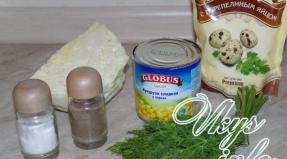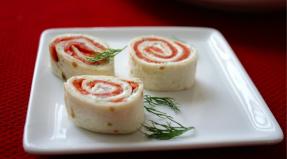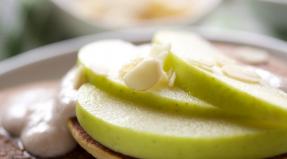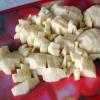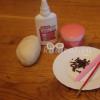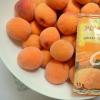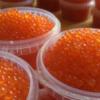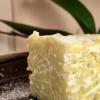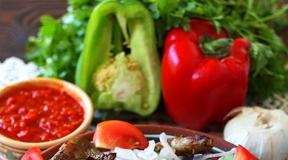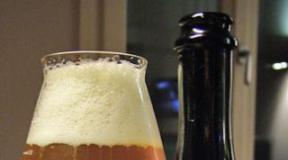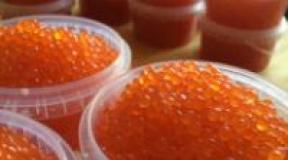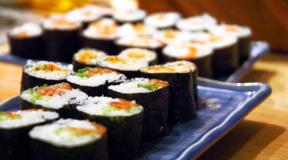Why, despite the beneficial properties of persimmons, there are many contraindications? Persimmon - useful properties that the sun fruit conceals.
Bright and appetizing persimmon, benefits and harms to the body, what are the contraindications? How important are the properties of persimmon for us, how is it useful? Can a tasty and low-calorie persimmon do harm? To whom? These questions usually begin to arise in November, at a time when bright orange fruits appear on the shelves of markets and stores. It turns out that this is not only a delicious berry. The use of persimmon allows you to do without energy drinks, as it perfectly increases the tone of the whole body.
The fruits have an exquisitely rich aroma, extraordinary taste. Fresh - contain over 20%, and dried - up to 60% sugar. There are few organic acids. That is why they are useful for people with high acidity.
Persimmons have been cultivated in China for centuries - this is its homeland. From there she got to East Asia, then to Japan. Only at the end of the 19th century they learned about it all over the world. Its fruits are highly valued by the Chinese. And Japan considers it a national fruit.
Persimmon (Diospyros - translation from Greek - "fruit of the gods") is not actually a fruit, but a large, round, juicy berry with a smooth, thin peel of varying color (from yellow to brilliant orange). The color of the peel depends on the degree of ripeness or variety. The flesh is soft, almost jelly-like when the fruit is fully ripe.
There are about five hundred varieties of persimmon. This evergreen plant has a high nutritional value, moreover, we receive benefits not only from the fruits, but also from the leaves, bark, and roots.
Unripe fruits, due to their high tannin content, are often used by the Japanese as an addition to sake or liqueurs.
Roasted seeds are used as a substitute for coffee.
How to choose the right persimmon, which is more useful
 You should definitely know this. Only soft, fully ripe fruits have really juicy, tasty flesh. It is from such fruits that we get the most benefit. Store them with extreme care, being careful not to damage your skin. Damaged berries quickly rot. It is best to keep them frozen. By the way, freezing removes astringency. Persimmons are eaten when the fruits acquire a jelly-like consistency.
You should definitely know this. Only soft, fully ripe fruits have really juicy, tasty flesh. It is from such fruits that we get the most benefit. Store them with extreme care, being careful not to damage your skin. Damaged berries quickly rot. It is best to keep them frozen. By the way, freezing removes astringency. Persimmons are eaten when the fruits acquire a jelly-like consistency.
Why is persimmon useful?
In Japan, China, the use of 2-3 berries is equated to lunch - they are the main ones on the dinner table. One fruit contains almost six grams of dietary fiber, which is equal to a quarter of the daily recommended value. Because fiber is digested slowly, you feel full for a longer period of time. That is why persimmon can be recommended for children, people involved in sports or experiencing great physical activity.
It is a dietary product that, due to its pectin content, is recommended for the treatment of digestive disorders. Traditional medicine uses the fruit to treat stomach ailments.
A large amount of sugars that berries contain are glucose, fructose. They support a healthy vascular system, strengthen the heart muscle. Despite this, the level of glucose in the blood remains within the normal range.
Persimmons are very nutritious, just like figs or grapes. Many people even eat dried candy instead of candy when drinking tea. This fruit contains so much glucose. When dried, it appears on the surface of the fruit like frost.
The use of persimmon is that it contains vitamin C (antivirus), provitamin A (carotene helps with eye and skin problems), vitamins B, PP, iron salts (hematopoiesis), and many other valuable substances. It can be recommended for people suffering from high blood pressure or cardiovascular disease.
As a rule, in those people who, as prescribed by a doctor, take diuretics, the excretion of useful potassium from the body increases, that is, they must take additional potassium-containing drugs. But if you add persimmons to your diet, along with apricots, apples, the need to take additional potassium-containing preparations will disappear by itself - the body will receive the potassium it needs so much from these fruits.
It contains 2 times more useful microelements, dietary fiber than apples. It also contains a lot of antioxidants.
It is an excellent source of iron, calcium, copper, as well as magnesium and potassium. Magnesium reduces the likelihood of kidney stones. One of the most important health benefits is its anti-cancer properties due to its high content of beta-carotene, vitamin A. This fruit may reduce the risk of lung cancer and is recommended for consumption by chronic smokers. Vitamins C, P reduce the fragility of blood vessels. Vitamins B 1, B 2 contribute to the normal functioning of the nervous system. Due to its high iodine content, regular consumption of this fruit helps to improve thyroid function - this is also one of the most beneficial properties of persimmons.
Due to the high content of sugars, potassium, persimmon juice can help replenish the body with energy, relieve symptoms of stress, fatigue, therefore, there is no need to use special energy or nutritional supplements.
Persimmon, diuretic or not? Persimmon has a diuretic effect, tonic properties, and therefore relieves swelling.
It soothes the nervous system, increases efficiency, has bactericidal properties against colibacillus, hay bacillus, and Staphylococcus aureus.
For colds, coughs, it is useful to gargle with the juice of one or two ripe persimmons mixed with ¼ glass of warm water.
A decoction from her cups, stalks is sometimes used to stop hiccups.
For therapeutic purposes, persimmon is used for anemia: you should drink 50-100 ml of juice 2 times a day before meals.
For bleeding gums, high blood pressure, ¼ teaspoon of powder obtained from crushed persimmon leaves should be taken twice a day for a week.
For chronic diarrhea, drink 500 ml of fruit decoction every 4 hours. The broth is prepared from six medium unripe berries cut into slices, filled with 3 cups of boiling water. The contents are covered with a lid for 20 minutes, and then filtered to free the broth from the pulp fibers.
Ripe fruits, devoid of astringent properties, are an excellent remedy for the treatment of constipation.
They also help the body control cholesterol levels. Since the fruits contain a sufficient amount of pectin, which can prevent the absorption of cholesterol by the intestinal walls.
Any fresh fruits or berries, as you know, have sugars, organic acids, salts, proteins, vitamins that are so necessary for a person, which have valuable nutritional and medicinal properties. Different fruits contain these elements differently.
Persimmon, for example, surpasses many crops growing in similar conditions in terms of sugars. Suffice it to give one example: ripe berries of any variety of this crop contain a lot of sugars, mainly glucose and fructose, versus 8-11% in apples, pears, and peaches. It should be noted that we import fructose from Holland. And semi-dried Caucasian (wild), sold in autumn or winter in the markets, contains sugar from 32 to 40%, and dry matter - 62-71%.
The fruits are used for various gastric diseases, as a preventive, therapeutic agent for scurvy. Fresh or dried berries are used for food.
Drying them is very simple - you can even use an ordinary oven, gradually adding fire. Dried persimmons taste like figs, only they are more dense.
Due to the lack of acid, the benefits of persimmon for stomach diseases, diarrhea, dysentery are indisputable. Due to the presence of pectin, it removes toxins. Glucose, fructose support the heart muscle.
The physician indicates that the thick juice of the fruit is recommended to drink 2-3 glasses daily for the treatment of hypertension. It is useful for thyroid disease. Most importantly, it regenerates damaged tissues.
Dried persimmon
Persimmon, one of the best health promoting fruits. It is processed mainly by drying.
Dried persimmons are rich in health-promoting nutrients such as vitamins, minerals and antioxidants that are vital. When dried, the sugar content in persimmons increases 3-4 times and it becomes more nutritious. Dried berries contain 8-10 times more vitamin C than apples. They also contain vitamin A, calcium, carotene, and protein.
Dried persimmons are effective for people with high blood pressure. It can stop diarrhea. Finally, it is suitable for people who are on a diet.
Dried persimmons are always covered with white "frost". This is not mold, it is glucose and fructose, which, after evaporation of moisture, crystallized on the surface during the drying of the fruit.
Useful and medicinal properties of leaves, roots, persimmon shoots

Oriental medicine uses a decoction of persimmon roots or leaves as an external remedy to stop bleeding, to disinfect wounds, cuts, punctures or scratches. External use of such a decoction will help reduce pain, relieve inflammation in hemorrhoids.
Shoots, leaves of this plant have a large amount of ascorbic acid. Especially a lot of it in the fall. A tea surrogate can be made from the leaves. A 1980 study by Korean scientists found that leaf tea contains 20.8 times more vitamin C than green tea!
Persimmon in cosmetology
Cosmetologists advise using the pulp of unripe fruits together with egg yolk, lemon juice - this mask is useful for skin with enlarged pores, for inflamed skin, for acne prone skin.
Contraindications for persimmons, what you need to know
If you try persimmon for the first time or give it to your child - be very careful - do not eat more than one fruit at a time, as there are people who, due to its astringent properties, may suffer from intestinal obstruction.
Unripe fruits contain an abundance of tannins (useful for periodontal disease of the gums), which give them astringency (0.2-0.5%). Therefore, a person who tastes an unripe fruit will feel that his mouth will "bind", as it were. However, the ripe fruit loses its astringency. If you pour warm water on an unripe berry for 12 hours, it will lose its astringency.
Rinsing your mouth and brushing your teeth after consuming persimmons are mandatory, since the remnants of sweet fibers between the teeth can provoke the development of caries.
Persimmons are high in tannin and pectin, so eating them on an empty stomach can lead to tight lumps in the stomach. While there, they can cause nausea, vomiting, and make you cry in pain.
Dried persimmon is very useful, but, for example, compotes cannot be cooked from it, since when cooking, the astringent taste characteristic of unripe fruits is restored.
The use of persimmon in industry
Unripe fruits, leaves, branches, roots are distinguished by a high content of tannins, therefore they are used for dyeing fabrics, producing varnish, indelible ink, tanning leather. Its wood is easy to process, polish. It was not without reason that they used it for parquet flooring in the construction of churches and museums. Persimmon wood was used to make musical instruments, weaving shuttles, and furniture.
In Japan, nets and ropes are impregnated with juice squeezed from unripe fruits, which makes them stronger and more durable. In addition, the juice is also used for the production of packaging paper for tea. At the same time, the paper does not allow moisture to pass through, protects tea from mold.
All of the listed industrial, medicinal and useful properties of persimmon give it high popularity, especially among gardeners. It has a peculiar pleasant taste and significant nutritional value. It is preserved by the method of quick freezing in sugar syrup or frozen without it, packed in cellophane. Freezing is one way to get rid of astringency. This is a great dessert dish.
In general, persimmon is good everywhere, very useful! The main thing is to be able to choose the right fruit so that its tart taste does not disappoint.
So, let's summarize by listing the main useful properties of persimmons:
- has diuretic, tonic properties;
- calms the nervous system;
- fruits have antibacterial action;
- prevent the development of vascular diseases;
- magnesium reduces the risk of kidney stones;
- vitamin A protects against cancer;
- vitamins C, P help reduce the fragility of blood vessels;
- using the fruit for cosmetic purposes helps to narrow pores, smooth wrinkles, make the skin smooth, matte.
Contraindications, side effects, harm that persimmon can cause:
- should be consumed with great care, no more than one fruit per day, by people suffering from obesity or diabetes;
- it can lower blood pressure, neutralize the effect of drugs used to increase blood pressure;
- To avoid the negative effects of astringent properties on the intestines, eat only ripe fruits. But if it was not possible to avoid this, then eat it at least on a full stomach;
- Never eat persimmons (ripe or unripe) after or before eating crab meat, as this type of meat is likely to increase the astringency - problems with intestinal obstruction are unlikely to be avoided.
The information contained in the article should in no way be construed as medical advice. Check with your doctor before starting any diet program that includes persimmons. The benefits and harms to the body, contraindications are very individual. Use your doctor's advice and common sense before making any lifestyle changes.
In late autumn, bright orange persimmons begin to appear on the shelves. In Russian, the name of this delicious fruit came from the Persian language, and literally translates as a date plum. But it is worth knowing that, in addition to its delicate taste, persimmon has many medicinal qualities.
Why is persimmon useful?
The sun berry is a rich source of vitamins and important trace elements that nourish the body and have a beneficial effect on it.
Persimmon is called "the berry of longevity." It improves the condition of the skin and has a positive effect on the entire body.
Among the many positive properties of the berry, the most basic ones should be indicated:
- Sun fruit characterized by a significant content of beta-carotene- a natural antioxidant. This pigment, being a precursor of vitamin A, is beneficial for vision and strengthening of the eye muscles. It also protects the skin from environmental hazards, prevents the appearance of wrinkles and slows down the aging process of cells. It is believed that the berry is a recipe for longevity.
- Berry has a beneficial effect on blood vessels and heart muscle. Polymeric phenolic compounds can produce so-called "good cholesterol", which cleans the vessels of plaque and prevents blood clots.
- Increases the level of hemoglobin in the blood, therefore, the fruit is recommended for use by people suffering from anemia and anemia.
- Diuretic effect promotes the excretion of sodium salts from the body, prevents the appearance of urolithiasis. As a result, the introduction of persimmon into the diet leads to the normalization of blood pressure, which is an invaluable quality of the berry for people with hypertension.
- Berry rich in iodine content. Its use is an excellent preventive measure for thyroid diseases.
- High percentage of potassium content helps to maintain the development and normal functioning of the muscles.
- The fruit contains a large complex of vitamins, including, has a significant concentration of vitamin C, which is important for the development and renewal of the functions of cells in tissues, blood vessels, bones, gums and teeth, accelerates recovery and strengthens the body's immune defenses.
- Berry is a natural antidepressant that lifts the mood and prevents the manifestation of stressful conditions.
What vitamins are contained in persimmon, the composition of trace elements and organic substances
The sun fruit owes its beneficial qualities to its exceptional composition.

Persimmon includes:
- Vitamins A, C, E, K, PP and B vitamins;
- Trace elements: high percentage of potassium (161 mg), phosphorus (18 mg), magnesium (9 mg), calcium (8 mg), sodium (1 mg) and iron (0.15 mg). The berry is rich in iodine and is one of the top five foods in terms of iodine content;
- Antioxidants
- Organic acids;
- Tannins or tannins that give persimmons a tart taste;
- Kakheti;
- Polyphenols, which help the body to improve its health during complex reactions within the body;
- Fiber, which is extremely beneficial for bowel function.
Note! There is twice as much fiber and necessary microelements in persimmons than in apples.
Persimmon: benefits and possible harm to the body
Among the above medicinal qualities, it is worth emphasizing in more detail that the use of persimmon has a general strengthening effect on the body, increasing the tone and resistance to various kinds of infectious diseases.

Polyphenols, as well as kakhetin, have anti-inflammatory and antibacterial effects. Thanks to its beneficial composition berry perfectly nourishes the body during the flu and cold season. And the orange pigment beta-carotene has a positive effect on the respiratory system, preventing the development of complications, in particular, pneumonia and bronchitis.
For active smokers, the use of persimmons will become especially relevant.
Berry prevents the appearance of malignant tumors and reduces the likelihood of developing lung cancer.
Be careful! You should know how to use this berry correctly so as not to harm the body.
Undoubtedly, persimmon is characterized by many useful properties, however harm from its use is also possible:
- You should not eat unripe fruits and ripe ones should not be eaten on an empty stomach. It is the peel of the persimmon that contains the astringent tannins, which in some cases cause pieces of food to stick together in the stomach and intestines into a viscous dense lump, which contributes to digestive disorders. Before you start eating the berry, it is advisable to peel it.
- You can't eat persimmons with digestible proteins: seafood, fish, milk. Tannic acids combine with proteins, forming a continuous lump.
- Due to the possibility of creating a food coma, intestinal obstruction and the likelihood of vomiting, persimmon is harmful to a child's fragile body... Doctors do not recommend giving the berry to children under 10 years of age.
- Is always after consuming persimmons, you need to brush your teeth or rinsing the mouth, as there is a high risk of caries from exposure to the enamel of organic acids and tannin.
- Fetus increases blood sugar levels therefore not recommended for diabetics.
Persimmon "Korolek", benefits and harms
Persimmon "Korolek" is a very popular variety, because its taste is almost devoid of astringency, even in unripe berries.
 It looks like a persimmon "Korolek"
It looks like a persimmon "Korolek" This type of persimmon contains more vitamin A in its composition than in other of its varieties, therefore, it is "Korolek" that is most useful for the organs of vision. Due to the lack of astringent qualities, its fruits do not aggressively affect the gastrointestinal tract. Otherwise, the useful qualities of the species and the possible harm are not very different from other varieties.
Persimmon "Sharon", benefits and harms
"Sharon" is a fruit obtained by crossing a Japanese persimmon with an apple tree. Variety characterized by a complete absence of tart taste and seeds... Has a firm, yet tender pulp. The taste contains notes of apricot, quince and apple.
 It looks like a persimmon "Sharon"
It looks like a persimmon "Sharon" Berry "Sharon" in comparison with other varieties is less high-calorie (60 kcal per 100 g), but also there is much more sucrose than fructose, therefore, the variety increases blood sugar levels more. The Sharon variety is the richest in beta-carotene. The plus for the variety is that it can be eaten by pregnant women.
Dried and dried persimmons
As a result of natural drying and drying x urma does not lose its useful qualities. This method of harvesting relieves the berry from the tart taste. The main difference between dried and dried fruit from fresh berries is a high calorie content, which is about 274 kcal per 100 g and a doubled amount of potassium content.
 Dried persimmons retain all their benefits. But dried fruit is very high in calories.
Dried persimmons retain all their benefits. But dried fruit is very high in calories. For this reason, even in small quantities, dried and dried persimmons should not be eaten by people who have diabetes. Due to the high potassium content such persimmon is extremely useful for hypertensive patients... It even more effectively softens blood vessels and improves blood circulation. These dried fruits are good for helping the digestive tract.
Interesting fact! Drying is an ancient conservation method. With the development of technology, artificial dryers began to be used in the manufacture of dried products. Due to the violation of natural processes and drying of the product in the dark, as a result of such drying, a real dried product is not obtained.
The definition of "dried product" has lost the line with conventional drying and is used in trade to promote dried goods.
However, dried products have a much higher nutritional value, are very laborious to manufacture and are more expensive.
In a dried product, natural enzymatic processes take place for a long time, while cold drying is conventional dehydration. Dried foods are much less prone to soaking or shrinking during storage.
Frozen persimmon, benefits and harms
The frozen berry has all the beneficial qualities of a fresh product.

Freezing is an excellent solution for harvesting berries for the winter... It can be stored for up to 6 months. In addition, when frozen, tannin is destroyed, which makes the fruit viscous.
The benefits of persimmon for a woman's body
The sun fruit has a positive effect on a woman's health.
 Persimmon helps girls and women to maintain their health.
Persimmon helps girls and women to maintain their health. Useful qualities of the berry lie in the high content of vitamins and microelements important for the female body:
- High potassium content in persimmons helps a woman with menopause when there is a high likelihood of a stroke. In addition, potassium helps to remove excess fluid from the body and relieves swelling.
- Magnesium is rightfully considered a female trace element, and a woman's body is extremely sensitive to its deficiency. Magnesium in the berry normalizes the menstrual cycle, important when planning a pregnancy. Also, with the regular use of oral contraceptives containing magnesium-excreting estrogens, the use of persimmons is extremely beneficial.
- Due to the sodium content, persimmons will be very useful for women who exercise regularly. He provides muscle strength and elasticity to joints.
- Persimmon replenishes the lack of iron in the body, which is often found in women of childbearing age.
It's important to know! It is undesirable to use persimmon for nursing mothers because of the risk of an allergic reaction and problems with a fragile digestive system in the baby.
Why is persimmon useful for men
For the male half of the population, the main beneficial quality of persimmons is the prevention of tissue overgrowth in the prostate gland, which leads to prostate adenoma. Also persimmon has a beneficial effect on potency.
Why is persimmon useful for pregnant women? Benefit or harm
During pregnancy, you can only eat persimmon pulp. The presence of a large amount of nutrients in the berry is undoubtedly important for the development of the baby in the womb. I AM year you can eat to lower blood pressure when taking medication is undesirable.
 During pregnancy, it is better to eat only persimmon pulp.
During pregnancy, it is better to eat only persimmon pulp. However, she may cause an allergic reaction, the likelihood of which in the body of a pregnant woman is several times higher. A woman's immunity, tuned to protect the fetus, works more aggressively.
The use of persimmon in the presence of problems with the intestinal microflora entails not a laxative, but a strengthening effect. Therefore, in view of the above the benefits or harms of berries during pregnancy must be judged individually.
Persimmon for weight loss
Persimmon has a high calorie content- 66 kcal per 100 g, for example, in an orange - 48 kcal. This does not allow using the berry for weight loss.
 Persimmons are not eaten during the diet, because they are high in calories.
Persimmons are not eaten during the diet, because they are high in calories. But in many modern diets it is included to cleanse the body due to its laxative effect and a significant amount of fiber.
Persimmon also effectively compensates for the lack of vitamins that occurs during a long stay on a diet.
Contraindications for the use of persimmon
Berry you can not eat in such cases:
- postoperative period to prevent adhesions and intestinal obstruction;
- intolerance or allergies;
- the presence of problems with the pancreas, acute pancreatitis.
Relative contraindications, when it is permissible to eat persimmon in small quantities, include:
- the presence of diabetes mellitus;
- obesity;
- a tendency to constipation.
To get the most out of the sun fruit you need to properly eat this tasty treat.
This video will tell you about the benefits of persimmons:
The following video will tell you what you can't eat persimmons with:
This video will show you what happens if you overeat persimmons:
Persimmon has an unusual delicate and sweet taste. It is eaten with joy by both adults and children. It is recommended to eat the fruits fresh, the season falls in September - December. But even in the “off-season” you can buy fruit in almost any supermarket. Today we want to tell you everything about persimmon: the benefits and harms of diabetics, pregnant women, constipation and much more. There is something to tell.
What is persimmon and where does it grow
Persimmon is primarily a genus of trees and shrubs, and then the fruit of this plant. Usually persimmon trees love tropical and subtropical climates. Some varieties of persimmon trees live up to 500 years and continue to bear fruit.
Many people torment themselves with the question of what a persimmon fruit is: a berry or a fruit. According to authoritative sources, you can often find both one and the other definition. But in most cases it is still a berry. Persimmon grows in warm countries with tropical and subtropical climates such as:
- China, Japan, Korea.
- Russia, Georgia, Azerbaijan, Israel, Turkey.
- Spain, Italy, Portugal.
- Central American countries.
In Russia, persimmon grows in the Krasnodar Territory, Dagestan, the Volgograd Region and North Ossetia. Depending on the territory of origin, persimmon has varieties. Some types of fruits grow on trees, others on bushes.
Persimmon varieties
The Greek name for persimmon means "food of the gods" or "divine fire", in Latin it sounds like Diospyros. The name persimmon got from the Persian language and literally translates as "date plum". At first, this name applied only to the Caucasian wild persimmon, but after a while it spread to other varieties.
Persimmons have different types, they are formed depending on the variety, country of origin and method of preparation. There are such main varieties of persimmons:
- Kinglet.
- Sharon or Apple.
- Tomato persimmon.
- Honey or Tangerine.
- Caucasian wild, black, small persimmon.
- Spanish (Kaki).
So, in the Caucasus, small black persimmons grow, such a wild variety rarely hits store shelves. The abundance of types of berries provokes to choose the most useful persimmon variety. Russian consumers have made their choice in favor of the Caucasian persimmon, we propose to study this variety in more detail.
Chemical composition and calorie content
Fruits are an excellent source of vitamins, minerals and other beneficial trace elements. Due to its unique composition, the fruit is an excellent remedy for strengthening the immune system. The chemical composition of the berry is water, vitamins, minerals, acids, tannins.
The calorie content per 100 grams of the product is 50-60 kcal. Compared to dried or dried persimmons, fresh persimmons are low in calories and are recommended for inclusion in the diet for weight loss. The berry does not contain saturated and normal fats, cholesterol.
Vitamins are all over the head
This valuable food product is prized for its high amount of vitamins. The complex of useful vitamins and minerals improves vision, rejuvenates the skin, and improves the sexual functions of the body. Studies have identified the following vitamins in persimmons:
- Vitamins and provitamins A (Retinol).
- Vitamin C (ascorbic acid).
- Vitamin P.
The fresh fruit contains malic and citric acid. The presence of beta-carotene in ripe berries contributes to the rejuvenation of the skin of the face and body, with proper use, the skin becomes soft and silky. Provitamin A will be beneficial for men - this substance copes with many sexual problems in men.
Vitamins in persimmons reduce the risk of cancer in smokers. This is possible due to the high beta-carotene content in the fruit. Smoking cessation rooms often recommend people who quit smoking to eat Caucasian persimmon. The fruit raises the mood, tones the smoker's body, increases efficiency. The person feels healthier and does not want to return to nicotine addiction.
The role of iodine in persimmon
Lack of iodine in the body can lead to serious consequences. The benefits of persimmon are also manifested in the fact that the fruits are rich in iodine, although not in the same amount as, for example, seaweed. The daily norm of iodine for an adult is 150 mcg. To fill the body with iodine, you need to eat only 2 pieces of the fruit.
The main source of iodine is a balanced diet or frequent trips to the sea.
Useful properties: when and to whom will it be useful?
The benefits and harms of persimmon are due to its chemical composition, calorie content, and water content. The fruit is included in the diet for weight loss diets, pregnant women, and during breastfeeding. Doctors note the usefulness of persimmon for the heart and blood vessels, the thyroid gland, and the genitourinary system.
Due to the high content of vitamins, minerals and other useful components, the benefits of persimmon are used in a wide variety of conditions. Experts identify 10 main beneficial properties of persimmon for the body:
- The disinfecting effect of the fruit protects the body from intestinal infections by destroying Escherichia coli.
- Persimmon is good for blood vessels - this is possible due to the content of vitamins C and P. These components strengthen the walls of blood vessels.
- Eye health. Thanks to vitamin A, the berry strengthens the eye muscle.
- The fruit contains pectin, which improves digestion.
- The fruit is used as a prophylaxis for cardiovascular disease and is recommended by cardiologists. Doctors advise to eat 1-2 fruits per day.
- The thyroid benefits of persimmons are possible due to their high iodine content.
- Persimmons are healthy for their diuretic properties. This feature of the fruit reduces the risk of urolithiasis. Reduces the amount of salt and prevents the formation of stones.
- The fruit has medicinal properties for anemia (anemia). The product saturates the body with iron. The use of persimmons in the diet of preventive nutrition will replace iron-containing preparations.
- Colds, cough, immunity. The fruit stimulates the immune system, has expectorant and antiseptic properties.
- Stabilization of the nervous system. Persimmon contains a large amount of vitamin B. This vitamin improves mood, relieves anxiety, improves concentration and sleep.
In addition, the berry improves gum health. Experts note persimmon as a preventive measure against scurvy (a disease associated with a lack of vitamin C). Reviews of doctors and patients on specialized forums indicate that the berry is a valuable product for pregnancy, breastfeeding, constipation and for liver health.
Special effect on the female body
The fruit has gained great popularity among women. The benefits of persimmon for a woman's body is that all the components from the chemical composition have a beneficial effect on the aging process of the skin, masks based on berries remove wrinkles. The fruit itself is often used as a useful component in the diet of losing weight women.
Masks will help to tighten the skin of the face, the benefits are visible even for women after 50 years. Such products cleanse and tighten pores, smooth out wrinkles, whiten pigmentation and correct the face contour line.
Face mask recipe
To prepare the mask, you will need 15 grams of persimmon, 10 ml. grape oil and 10 grams of cottage cheese. Make gruel from the fruit and cottage cheese, chopping it in a food processor. Add grape oil while chopping. Apply in a thin layer on the face for 40 minutes.
During pregnancy and lactation
- Calcium strengthens the baby's skeleton.
- Removes swelling.
- Normalizes metabolic processes.
- Prevention of anemia.
The benefits and harms of fruit during the period of bearing and feeding a child are studied by many specialists. The benefits of persimmon for pregnant women are controversial. Doctors talk about mandatory consultations before consuming such fruits. What can be argued: the fruit will be beneficial if eaten in limited quantities. An overdose will harm a fragile body, the child may develop allergic reactions.
The peel is dangerous to health!
You need to eat fruits without the skin - there are tannin substances that can cause the formation of food stones in the stomach.
For liver health
Persimmons are rich in antioxidants, thanks to these components, it can be used to cleanse the liver and detoxify the body. The berry neutralizes the effect of toxins, restores liver cells after stress and exposure to harmful substances. It is recommended to eat fruits in the morning after drinking alcohol.
Does it help with constipation
The remedy will help in the fight against constipation. It contains a large amount of water and natural fibers. Eating the fruit softens the stool, has a mild laxative effect. However, do not eat too many fruits, an overdose can have the opposite effect and will be harmful for constipation.
How persimmons can harm: contraindications
It is imperative to consult a doctor regarding the use of exotic fruits. In rare cases, the fruit can cause harm in the form of allergic reactions. Individual intolerance to the components of the berry is also possible. Experts identify such contraindications to the use of berries:
- Diabetes.
- Intestinal adhesions.
- Obesity.
Although persimmon is recommended as part of the diet for weight loss, it is dangerous for obesity. It is strictly forbidden to eat fruits for children under three years old, and adults are not recommended to combine persimmon with milk. Such experiments will harm the digestive system and can result in intestinal upset, diarrhea and vomiting.
The fruits are dangerous for babies because of their viscosity. The fruit contains a large amount of pectin and tannin. Once in the stomach, these substances interfere with the normal digestive process. These components form a viscous sticky mass. This mass is capable of forming stomach stones (bezoars), gluing pieces of food together. Sometimes such formations lead to serious consequences, which manifest themselves in the form of vomiting with blood and require the intervention of doctors.
Diabetes mellitus harm
Doctors do not recommend eating any kind of persimmon for patients with diabetes mellitus. The fruit contains a large amount of sugar, which is contraindicated for diabetics. According to the GI table, the average glycemic index is 45. You can eat ripe fruits, but in strictly limited quantities, determined by your doctor at an individual consultation.
Fructose, sucrose and simple sugar substances from the fruit are easily absorbed by the patient's body, which can lead to hyperglycemia. The amount of sugar in the chemical composition reaches 11%.
Features of the choice of useful fruits
The benefits of eating such fruits are possible only with the right choice. Unripe or spoiled food often ends up on supermarket shelves. There is little benefit from them, but harm can be grabbed with wealth. Unripe fruits are often called dummies in the middle of raw food society due to the fact that they do not bring any health benefits.

A sane mother will never let her child eat an unripe fruit, fruit or vegetable. In order to eat natural gifts without harming yourself, but to receive only benefits, you need to know the rules for choosing persimmons. Small recommendations on the rules for choosing the right fruits:
- Dark flesh is a sign of sweetness.
- Hard persimmons will not be as sweet, but the risk of choosing a spoiled product is reduced.
- Fruit rind color should be medium orange. If the color is too light, the fruit is unripe.
There are no good fruits on the shelves of supermarkets. Putting unripe persimmon fruits in the freezer for 3-4 hours and then defrosting them, you will get a completely ripe fruit without viscosity and sourness.
Finally: the benefits of leaves
Persimmon leaves are often used to make tonic tea. Decoctions of the leaves are used in folk medicine to stop bleeding, disinfect wounds, cuts and scratches. Traditional healers recommend using remedies based on persimmon leaves against hemorrhoids.
Korean scientists in 1980 found that persimmon leaf tea contains more vitamin C than regular green tea.
Persimmons are golden yellow, round or oval with smooth skin. Its sweet, tasty pulp is packed with health-promoting and vital nutrients for optimal health, such as vitamins, minerals and antioxidants.
Many lovers of this product do not know anything about how the fruit grows. Someone considers it a shrub, although in fact persimmon is a tree that grows in subtropical and tropical climates. The tree can be up to 500 years old. to find out more about this fruit, what benefits and harms they can bring, read below.
How persimmon grows
The persimmon tree belongs to tropical or subtropical plants. It can be evergreen or deciduous. According to the botanical reference book, persimmon belongs to the Ebenaceae family of the genus Diospyros. Many plants belonging to this genus have edible fruits and can differ from each other only in their size.
China is considered the birthplace of persimmons. From China, as scientists assume, she first came to the Korean Peninsula and then to Japan. Persimmons were introduced to Europe and America much later. Today it is grown in many countries.
Many persimmon plants are not tall trees or shrubs with a height of about 7-7.5 meters. Each season it produces a variety of fruits, which differ from each other in shape, size and color of the pulp depending on the variety, which can be from golden yellow to rich orange and brown (chocolate). The whole fruit is edible with the exception of the seeds and sepals.
Types of persimmon where it grows
Basically, the tuyere is classified by the taste of the fruit, which can be astringent or non-astringent. Astringent varieties are cultivated mainly in Japan and contain a lot of tannins, which explains their taste. such fruits should be fully ripe on the tree to reduce the amount of tannins.
Non-astringent varieties contain less tannin and can be eaten when the fruit is still firm.
It makes no sense to list persimmon varieties, since many new varieties have been bred in recent years. It is grown today in many countries where there are appropriate conditions for it.
To us in Russia, persimmon can be found in the Caucasus region, Crimea, Krasnodar Territory, Volgograd Region. It goes on sale since mid-autumn.
At this time, in the local market, you can see two types of persimmons - kinglet and persimmon. Oddly enough, both species grow on the same tree and can combine several types of persimmons at once under such names.
Of greatest interest is the beetle: these fruits are more attractive in appearance and larger. It can be either astringent or non-astringent. A non-astringent species of beetle grows after pollination by insects. And the one that knits in the mouth was not pollinated in natural conditions.
Why is persimmon useful?
Persimmon contains a fairly large amount of vitamins and minerals. The amount of nutrients is so great that persimmons are considered to be healthier than grapes, apples or figs.
The product contains the following nutritional components:
- ascorbic acid (vitamin C);
- vitamins B1 and B2;
- vitamin P;
- provitamin A (beta-carotene);
- potassium;
- phosphorus;
- calcium;
- manganese;
- sodium;
- iron;
- magnesium.
The presence of all these components makes the persimmon fruit very useful for the human body. Persimmons contain a lot of carbohydrates and sugar, which can be easily absorbed in the body. But proteins and fats in the fruit are very small. If you eat 1-2 fruits a day, then it is quite possible to provide the body with a daily dose of useful trace elements.
Persimmon is a low-calorie product. For 100 grams of delicious pulp, depending on the variety, it can contain only about 70 kcal. Although glycemic is not low, it corresponds to the average and is equal to 45 units.
Persimmon beneficial properties
Persimmon is a storehouse of vitamins and minerals that endow the product with useful and sometimes medicinal qualities. The fruit is a wonderful natural antioxidant. This property gives the product the ability to combine free radicals, thereby cleansing the body of toxins and toxic substances. 
The product also contains catechin, which has anti-inflammatory, antihemorrhagic, antibacterial effects. For these properties, persimmon is used in the fight against Staphylococcus aureus and Escherichia coli.
Monosaccharides normalize the functions of the cardiovascular system and deliver nutrients to the heart muscle.
Vitamin P and C help to strengthen blood vessels. Therefore, persimmon can become a natural remedy for migraines and frequent headaches, as well as help to normalize blood pressure.
The iron present in the composition makes the fetus indispensable in the presence of anemia and in the fight against tuberculosis. With such diseases, they not only consume the fruit fresh, but also brew healthy natural tea from persimmon leaves.
Provitamin A improves visual acuity, slows down the aging of the organs of vision. Also, beta-carotene has a positive effect on the respiratory system, reduces the likelihood of lung cancer, and is also able to prevent bronchitis and pneumonia.
Persimmon has diuretic properties, which makes it especially useful for people suffering from urolithiasis. Magnesium promotes the excretion of salts, which is an excellent prevention of kidney stones. To achieve a diuretic effect, it is necessary to consume 3-4 fruits per day.
Persimmon is very useful in the prevention and treatment of thyroid diseases. This feature is due to the high iodine content in the product. And vitamins A and C strengthen the body's immune system.
Due to the wide range of vitamins and microelements, persimmon has a calming effect on the nervous system, has a tonic property, helps to eliminate seasonal vitamin deficiency and normalize healthy sleep.
Persimmon benefits for the body
Once upon a time, the Greeks called the fruit of the persimmon "the fruit of God." With its taste and benefits for the body, it fully deserves this name. The benefits of persimmon are invaluable:
- Has a beneficial effect on the cardiovascular system;
- Helps reduce high blood pressure;
- Serves as the prevention of thyroid diseases;
- Reduces the deposition of sclerotic plaques on the walls of blood vessels;
- Good prevention of scurvy and vitamin deficiency;
- Serves as the prevention of degenerative changes in the retina;
- Supports the health of the skeletal system;
- Has an antioxidant effect on the body, inhibits the action of free radicals;
- Improves enzymatic and metabolic processes;
- Normalizes lipid metabolism;
- Has a beneficial effect on the liver and gallbladder;
- Persimmon juice relieves depression, tension, increases the tone of the body;
- Useful for nervous exhaustion;
- Serves as the prevention of cancer of the digestive tract;
- The pulp of the fruit relieves an allergic reaction to the skin, relieves inflammation, including itching from insect bites;
- A decoction of persimmon leaves promotes the healing of purulent wounds and abscesses;
- Decoction of sepals has a diuretic property, helps with enuresis;
- Leaf tea is good for the elderly and anemic patients;
- Dried persimmon decoction is useful in the treatment of hemorrhoids;
- Shredded seeds can be a great coffee substitute.
Persimmon is used in cosmetology. Masks made from its pulp eliminate wrinkles, improve skin tone and color. The simplest face mask: combine egg yolk with 2 tablespoons of pulp puree, add half a teaspoon of lemon juice and apply on face. Wash off after 10-15 minutes.
The most expensive musical instruments and furniture are made from the wood of this tree.
Contraindications and harm
Surprisingly, but persimmon has a whole list of contraindications, which must be taken into account in the systematic use of the fruit.
The product is contraindicated for people with diabetes. This ban is due to the high content of glucose and carbohydrates in persimmons. However, the fiber present in the composition still allows infrequent use of the fetus, in particular with type 2 diabetes, because it is fiber that prevents the rapid increase in sugar levels. 
Children under the age of three should not bear fruit. The tannin contained in the product contributes to the formation of a specific viscous mixture in the stomach, which the digestive system of the child's body is unable to assimilate.
The same feature causes a ban on the use of persimmons in the postoperative period of rehabilitation, gastritis, intestinal obstruction or adhesions. With dysbiosis, the use of persimmons can lead to constipation.
Persimmons can provoke an allergic reaction in people with an individual sensitivity to iodine.
With a high degree of obesity, the consumption of persimmons should be kept to a minimum. Its astringent properties can provoke metabolic disorders.
Care should be taken when using persimmons for breastfeeding women, since the orange color of the pulp can cause an allergic reaction in the baby.
In the presence of any diseases or uncertainty about the correctness of actions, it is recommended to consult a doctor before using the fetus.
The use of persimmon in cooking
Persimmon is great for consumption in its pure form. But when you want something special, you can use the product to prepare an original salad, dessert, jelly or jam, and even a marinade for meat. Some countries have their own traditional persimmon dishes: jam, marmalade and molasses.
Culinary gurus know recipes for persimmon wine, beer, and cider. In Japan, unripe astringent fruit is used in the preparation of traditional vodka - sake.
A coffee substitute is obtained from the dried seeds of the fruit.
Freshly squeezed juice of the fruit is called "bekmez", and the pulp of the fruit is added to cocktails. Add whipped cream, vanilla and some liqueur to the pulp for a delicious drink.
For persimmon salads, you can make dressings by adding honey, orange juice, cream cheese.
To get a delicious dessert, the fruit slices are poured with lemon juice, sugar, cream are added, mixed with yogurt or ice cream.
Dried, the product is especially popular. Dried persimmons taste like figs. For drying, it is best to use seedless fruit varieties. For drying, select dense ripe fruits, peel them off, cut into cubes, dry at temperatures below 45 degrees to avoid darkening of the fruits.
How to choose a persimmon
The fact that persimmons enter the market unripe explains their astringent properties. The pulp of a semi-ripe fruit contains a large amount of tannin. This substance creates in the body a great variety of compounds of proteins and polysaccharides, which in turn causes such a taste.
The fully ripe fruit has a fairly small amount of tannin. You can eliminate such a defect by freezing the fruits and defrosting them before eating. And the use of an astringent product can be life-threatening. The Korolek variety is an absolutely ripe product that does not contain tannins, as a result of pollination of flowers. True, as mentioned above, other varieties of this fruit can also be sold under this name.
Persimmon astringents are usually harvested when they are firm but fully ripe. Non-astringent varieties can be removed from the tree when they have reached the color of the skin and are slightly soft. True, such fruits are worse transported.
In the store, choose fresh fruit with a bright yellow-orange color without any surface damage or traces of spoilage or rot on them.
Mature, hard, astringent persimmons can be refrigerated for several months. Non-astringent varieties have a short shelf life and can only be stored for a few days at room temperature. Keeps longer in the refrigerator.
To ripen the persimmons, place the fruits in a paper bag and let them sit in the room for a few days.
Persimmon medicinal properties
Persimmon is not only a tasty and healthy fruit for nutrition. It also has medicinal properties and is used to treat certain diseases.
So, with the daily use of only two pieces of persimmon, you can significantly improve your immunity, support the cardiovascular and nervous systems, and normalize sleep.
The tannins it contains can help with bleeding gums. The recipe is very simple: boil the sliced persimmons with a glass of boiling water and insist. Rinse your mouth daily until the problem disappears.
For wound healing, dried persimmon powder is used. It is mixed with bran in a 1: 1 ratio and sprinkled on wounds.
For chronic diarrhea, boil the fruit with boiling water and drink 500 ml daily every 4 hours.
An infusion or decoction helps with anemia. Prepare the infusion as follows.
Chop two medium persimmons and pour 300 ml of boiling water. Wrap and insist for an hour. Strain and drink a glass two or three times a day.
Persimmon for weight loss
Given the low calorie content and rich vitamin and mineral composition, persimmon is great for losing weight. There are several options for using it to get rid of extra pounds. You can arrange just fasting days only by using persimmon at least 2 kilograms a day.
The second option: breakfast and dinner eat only persimmons, and for lunch - foods rich in protein, such as eggs, meat, fish and others. Such a varied diet will not let you feel constantly hungry and will help you lose 2 to 3 kilograms per week.
Having decided to go on such a diet, one must not forget about the contraindications and dangers of this fruit. It is not suitable for everyone.
Summing up, we can say that persimmon is certainly very useful, it can bring tremendous benefits to our body and health. But we must not forget the harm. And for some categories of people, it is simply contraindicated.
What are the benefits of persimmon "food of the gods" learn more from the video
Read also ...
- Chicken liver pate
- Delicious zucchini with cheese in sour cream in the oven - a step by step recipe with video Zucchini recipes in the oven with sour cream
- Banana rice and corn flour pancakes (gluten free) with homemade banana sauce Banana pancakes with semolina
- Cabbage casserole with chicken Chicken fillet casserole with cabbage
